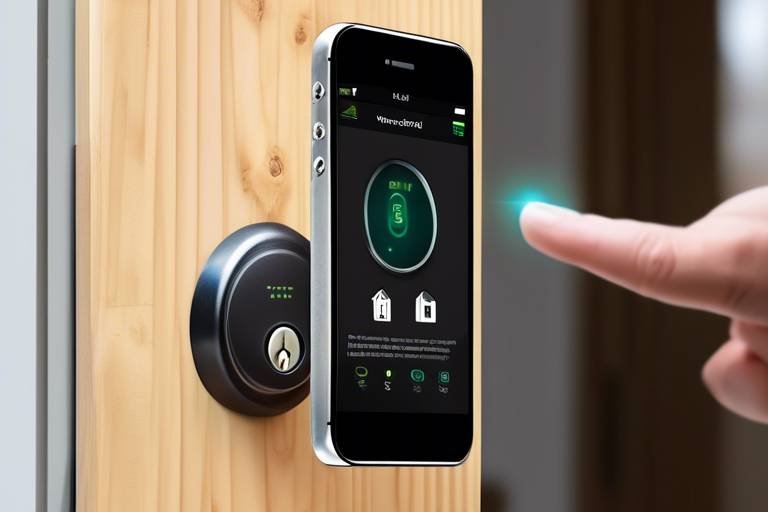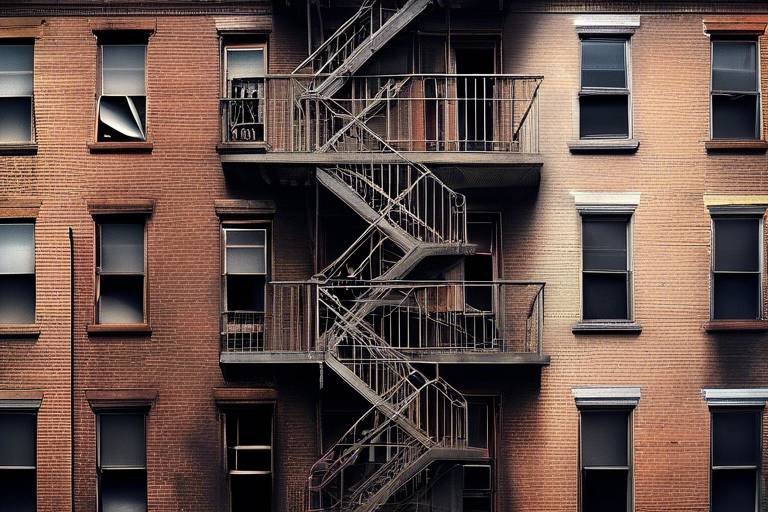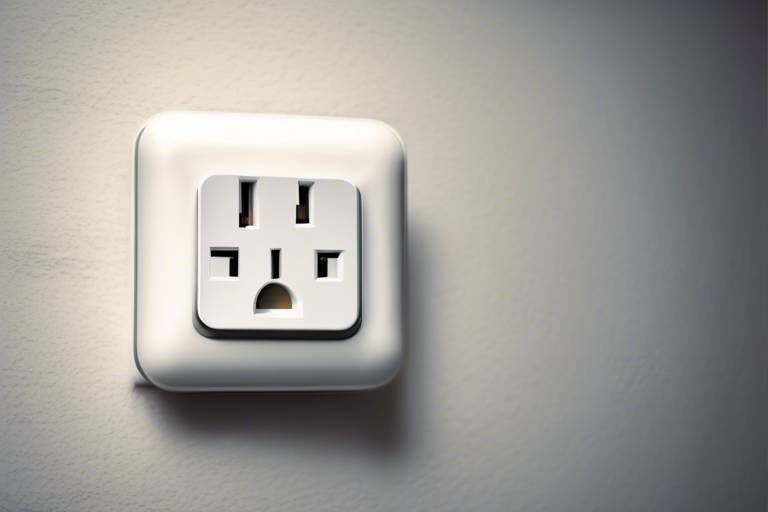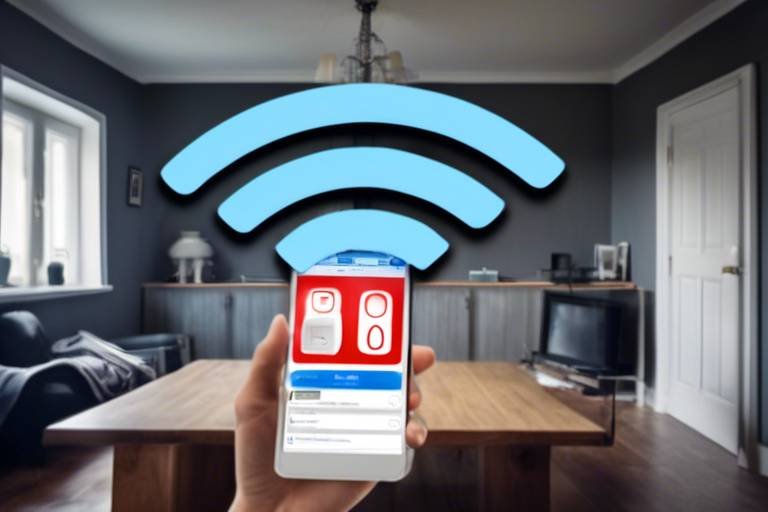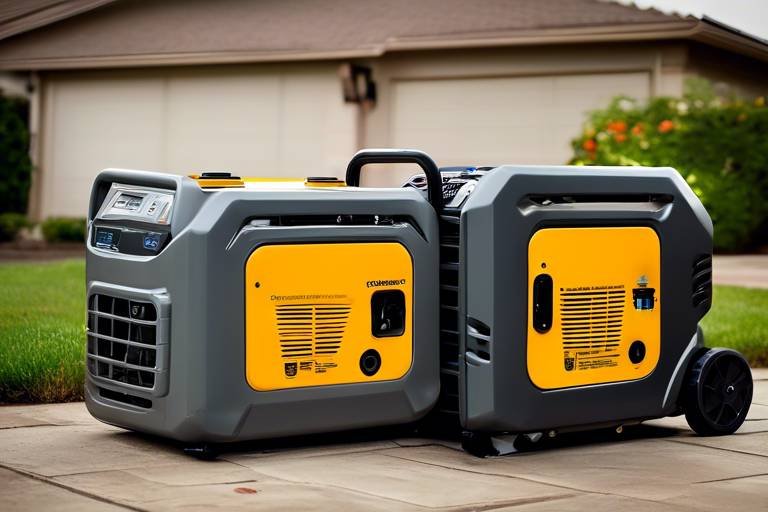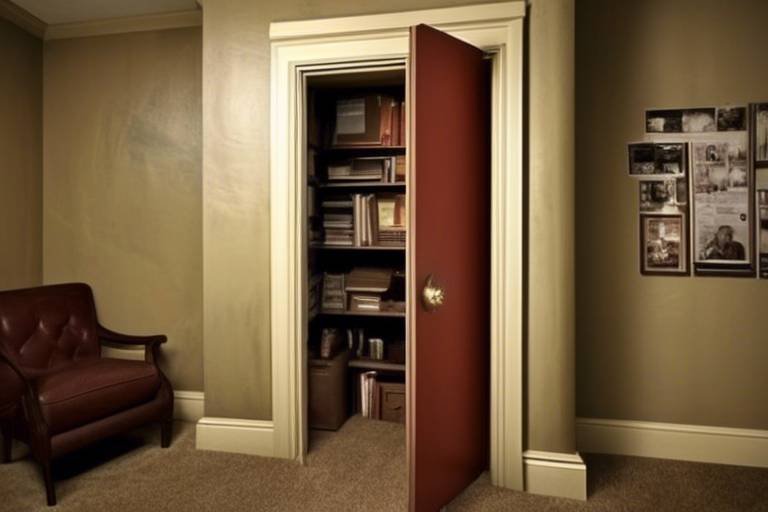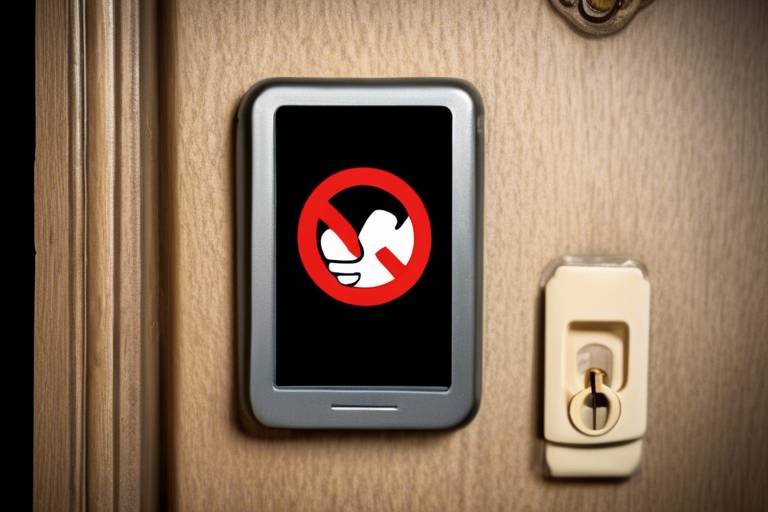Securing Your Vacation Home - Essential Tips to Follow
When you're off enjoying the sun and surf at your vacation home, the last thing you want to worry about is whether your property is safe. With the right strategies in place, you can ensure your getaway remains a sanctuary, allowing you to relax and unwind without a care in the world. This article provides crucial strategies for safeguarding your vacation property, ensuring peace of mind while you enjoy your time away. From understanding vulnerabilities to installing advanced security systems, we’ll explore practical tips and expert advice to enhance your home's security.
Vacation homes are often more vulnerable than primary residences. Why? Because they can sit empty for extended periods, making them attractive targets for thieves. Moreover, natural disasters can strike anywhere, and vacation homes are no exception. Recognizing these vulnerabilities is the first step in implementing effective security measures to protect your property. Common risks include:
- Theft: Unoccupied homes are prime targets for burglars.
- Natural Disasters: Floods, hurricanes, and wildfires can severely damage your property.
- Neglect: Without regular visits, small issues can escalate into major problems.
By acknowledging these threats, you can take proactive steps to mitigate risks and secure your vacation haven.
One of the most effective ways to protect your vacation home is by investing in a robust security system. There are various options available, from traditional alarm systems to state-of-the-art surveillance cameras. These technologies not only deter potential intruders but also provide real-time monitoring, giving you peace of mind while you're away. Imagine being able to check on your property from anywhere in the world with just a few taps on your smartphone!
When it comes to alarm systems, you have a choice between monitored and unmonitored options. A monitored system alerts a central station, which can dispatch authorities in case of an emergency. On the other hand, unmonitored systems rely on loud alarms to scare off intruders. Selecting the appropriate system can enhance your home’s security based on your specific needs and budget. Consider the following factors:
| Alarm Type | Pros | Cons |
|---|---|---|
| Monitored | 24/7 monitoring, quick response | Monthly fees |
| Unmonitored | No monthly fees, easy setup | Delayed response |
Smart home devices, such as smart locks and security cameras, can provide added convenience and security for your vacation home. With features like remote access and real-time alerts, you can keep an eye on your property no matter where you are. Imagine receiving a notification on your phone whenever someone approaches your front door! This level of control not only enhances your security but also offers peace of mind, allowing you to enjoy your time away fully.
If you're looking for cost-effective ways to bolster your vacation home’s safety, consider some DIY security solutions. Simple measures like installing motion-sensor lights, securing windows with sturdy locks, and using timers for indoor lights can make a significant difference. These small changes can deter potential intruders and give the impression that someone is home, even when you're miles away.
Having an emergency preparedness plan is essential for vacation homes. This includes having a strategy for natural disasters and ensuring that emergency contacts are readily available. Make sure to create a checklist that includes:
- Contact numbers for local emergency services
- A list of nearby friends or family who can check on the property
- Emergency supplies, like flashlights and first-aid kits
By being prepared, you can protect your investment and ensure your vacation home remains a safe haven for years to come.
Engaging with local communities through neighborhood watch programs can enhance security. Building relationships with neighbors fosters a supportive environment where everyone looks out for each other’s properties. It’s like having an extended family that’s always ready to lend a helping hand!
Establishing good rapport with neighbors can create a network of vigilance. They can help monitor your property while you're away, providing an extra layer of security. Consider organizing a neighborhood barbecue or a casual meet-up to strengthen these bonds. After all, a friendly neighborhood is a safer neighborhood!
Understanding your insurance options is vital for protecting your vacation home. Ensure you have adequate coverage for theft, damage, and liability to safeguard your investment. Regularly reviewing your policy can help you stay informed about your coverage and any changes that may be necessary as your vacation home evolves.
Regularly reviewing your insurance policy can help you stay informed about your coverage and any changes that may be necessary as your vacation home evolves. Make it a habit to check in with your insurance provider at least once a year. This way, you can adjust your coverage based on any renovations or changes in value, ensuring that you’re always adequately protected.
Q: What are the best security systems for a vacation home?
A: The best systems typically include a combination of monitored alarms, surveillance cameras, and smart home technology for comprehensive coverage.
Q: How can I prepare my vacation home for natural disasters?
A: Create an emergency plan, stock up on supplies, and consider installing storm shutters or reinforcing your roof.
Q: Do I need special insurance for my vacation home?
A: Yes, ensure you have coverage tailored for vacation properties, which often includes protection against theft and natural disasters.

Understanding Vacation Home Vulnerabilities
When it comes to securing your vacation home, the first step is to understand its vulnerabilities. Unlike your primary residence, vacation homes often stand empty for extended periods, making them prime targets for thieves and other threats. Imagine leaving your cherished getaway, only to return to find it ransacked or damaged. This is a nightmare scenario that can be avoided with the right awareness and precautions.
One of the most significant risks associated with vacation properties is theft. Criminals often scout neighborhoods for homes that appear unoccupied, and your vacation home, especially if it’s in a secluded area, might be an easy target. Additionally, the lack of regular activity can create a perception that no one is watching over the property. To combat this, consider arranging for someone to check on your home periodically or investing in some visible security measures.
Another vulnerability stems from natural disasters. Depending on your location, your vacation home may be susceptible to hurricanes, floods, wildfires, or even earthquakes. These events can cause significant damage and may leave your property vulnerable if not properly prepared. For instance, homes near coastal areas should have robust storm shutters and elevated foundations, while those in wildfire-prone regions may benefit from fire-resistant landscaping and materials.
Moreover, environmental factors can also pose risks. If your home is in a region with heavy snowfall, the weight of snow on the roof can lead to structural damage. Similarly, heavy rains can cause flooding or water damage if proper drainage systems are not in place. Therefore, it is essential to assess your property’s unique risks based on its location and environmental conditions.
To sum it up, being aware of the vulnerabilities that come with owning a vacation home is crucial. Here’s a quick overview of the common risks you should consider:
- Theft: Increased risk due to extended periods of vacancy.
- Natural Disasters: Vulnerability based on geographical location.
- Environmental Factors: Seasonal issues like snow load or flooding.
By recognizing these vulnerabilities, you can take proactive measures to safeguard your property and ensure that your vacation home remains a sanctuary of relaxation rather than a source of stress. Remember, knowledge is power, and understanding the risks is the first step toward effective protection.

Installing Security Systems
When it comes to protecting your vacation home, is one of the most effective steps you can take. Imagine this: you’re lounging on a beach, sipping a cold drink, and the last thing you want to worry about is whether your property is safe. By investing in the right security systems, you can enjoy your getaway with peace of mind, knowing that your home is being monitored and protected, even from miles away.
There are a plethora of security systems available today, each designed to cater to different needs and preferences. From traditional alarm systems that alert you to any unauthorized entry, to cutting-edge surveillance cameras that allow you to monitor your property in real-time, the options are abundant. The key is to choose a system that fits your lifestyle and budget. Think of it like picking a vacation destination; you want something that suits your needs and offers the best experience.
One of the first decisions you'll face is whether to opt for a monitored or unmonitored alarm system. A monitored system connects to a professional monitoring service that can respond to alarms, while an unmonitored system simply alerts you. While unmonitored systems might save you some cash upfront, they can leave you in a lurch if you’re away and unable to respond to an alert. On the other hand, monitored systems provide an added layer of security, ensuring that someone is always watching out for your property.
So, how do you choose the right alarm system? It often boils down to your specific needs and the unique vulnerabilities of your vacation home. Here are a few factors to consider:
- Property Size: Larger properties may require multiple sensors and cameras to cover all entry points.
- Location: If your vacation home is in a remote area, a monitored system might be more beneficial.
- Budget: Determine how much you’re willing to spend, not just on installation, but also on ongoing monitoring fees.
Additionally, integrating smart home technology can elevate your security setup. Smart locks, for instance, allow you to control who enters your home remotely, while smart cameras provide instant alerts to your smartphone whenever motion is detected. Imagine being able to check in on your property from anywhere in the world—it's like having a personal security guard at your fingertips!
If you're looking for cost-effective options, consider some DIY security solutions. Simple measures can significantly enhance your vacation home’s safety without putting a dent in your wallet. For instance, installing motion-sensor lights around entryways can deter potential intruders simply by illuminating the area when movement is detected. Similarly, using high-quality locks and deadbolts on doors and windows is a straightforward yet effective way to secure your property.
In conclusion, investing in the right security systems for your vacation home not only protects your property but also gives you the freedom to enjoy your time away without worry. By understanding your options—from traditional alarm systems to smart home technologies—you can create a comprehensive security plan that suits your needs. Remember, the goal is to make your vacation home as safe as possible, so you can focus on creating unforgettable memories.
Q: What is the best type of security system for a vacation home?
A: The best type often depends on your specific needs, but a combination of monitored alarm systems and smart home technology tends to offer the most comprehensive protection.
Q: Are DIY security measures effective?
A: Yes, DIY measures like motion-sensor lights and secure locks can significantly enhance security when combined with more advanced systems.
Q: How often should I review my security systems?
A: It's a good idea to review your security systems annually or whenever you make changes to your property.
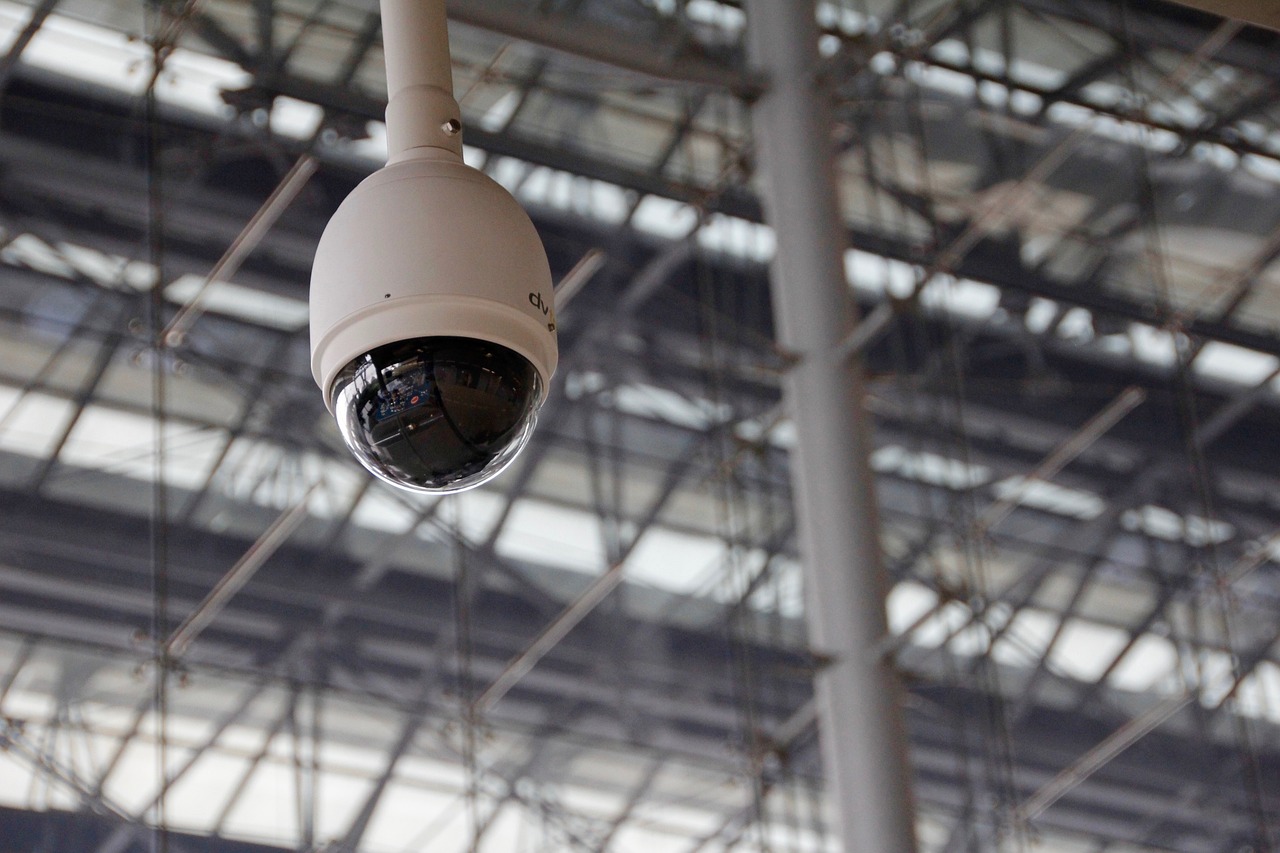
Choosing the Right Alarm System
When it comes to securing your vacation home, selecting the right alarm system can be a game-changer. With a plethora of options available, it might feel overwhelming at first. But fear not! Understanding the different types of alarm systems can help you make an informed decision that aligns with your security needs and budget.
First off, you'll want to consider whether you prefer a monitored or unmonitored alarm system. A monitored system is connected to a central monitoring station that can alert authorities in case of an emergency, providing an extra layer of security. On the other hand, an unmonitored system will sound an alarm locally, but it won't notify anyone unless you or a neighbor hears it. For vacation homes, where you might be away for extended periods, a monitored system could be worth the investment.
Another important factor is the type of sensors you need. Most alarm systems come with door and window sensors, but you might also want to consider:
- Motion detectors: These can detect movement inside your home and are particularly useful for large spaces.
- Glass break sensors: These can alert you if a window is shattered, adding another layer of protection.
- Environmental sensors: These can detect smoke, carbon monoxide, or even flooding, which is crucial for vacation homes that might be vulnerable to natural disasters.
In addition to sensors, think about the control panel and how user-friendly it is. A good control panel should be intuitive and easy to use, allowing you to arm and disarm the system quickly. Modern systems often come with mobile apps, enabling you to monitor your property remotely from your smartphone. Imagine being able to check in on your vacation home while lounging on a beach in Hawaii – that’s the kind of peace of mind you want!
Cost is another critical consideration. Alarm systems can range from a few hundred to several thousand dollars, depending on the features you choose. It’s wise to set a budget before you start shopping. Also, don't forget to factor in the potential monthly monitoring fees if you opt for a monitored system. Some companies even offer bundled packages that can save you money in the long run, so keep an eye out for those deals.
Lastly, consider the reputation of the alarm company. Look for reviews, ask for recommendations, and ensure they have a solid track record of customer service. You want a company that will be responsive and reliable, especially in times of emergency. Choosing the right alarm system isn’t just about the hardware; it’s about partnering with a company that you can trust to keep your vacation home secure.
In summary, selecting the right alarm system for your vacation home involves evaluating your needs, understanding the types of systems available, and considering factors like cost and company reputation. With the right system in place, you can enjoy your time away knowing that your property is well-protected.
1. What is the difference between monitored and unmonitored alarm systems?
Monitored systems alert a central station that can contact authorities, while unmonitored systems only sound a local alarm.
2. Are smart home alarm systems worth it?
Absolutely! Smart home systems offer convenience, remote access, and integration with other smart devices, enhancing your overall security.
3. How much should I expect to spend on an alarm system?
Costs can vary widely, but you can find systems ranging from a few hundred to several thousand dollars, depending on features and monitoring options.
4. Can I install an alarm system myself?
Many modern systems offer DIY installation options, making it easy for homeowners to set up their own security systems.

Smart Home Technology
In today’s digital age, is revolutionizing the way we secure our vacation homes. Imagine being able to monitor your property from anywhere in the world, all from the convenience of your smartphone! This level of control not only enhances your security but also provides peace of mind while you’re away. Smart devices like smart locks, security cameras, and even smart lighting systems can work together to create a comprehensive security solution that’s both effective and user-friendly.
One of the standout features of smart home technology is the ability to receive real-time alerts. For instance, if a security camera detects motion, you can get an instant notification on your phone. This feature allows you to take immediate action, whether it’s contacting local authorities or simply checking in on your property through the camera feed. It’s like having a virtual security guard watching over your home 24/7!
Moreover, smart locks provide an added layer of security. Unlike traditional locks, which can be picked or bumped, smart locks use advanced technology to prevent unauthorized access. You can grant temporary access codes to friends or maintenance workers, ensuring that only trusted individuals can enter your home. This is especially beneficial for vacation properties, where you may have different visitors at various times.
Let’s not forget about smart lighting. By installing smart bulbs or light switches, you can program your lights to turn on and off at specific times, creating the illusion that someone is home even when you’re away. This tactic is a well-known deterrent for burglars, who often target homes that appear unoccupied.
To give you a clearer idea of how these technologies can work together, here’s a simple table summarizing the benefits:
| Smart Device | Benefit |
|---|---|
| Smart Locks | Remote access control and temporary codes for guests |
| Security Cameras | Real-time monitoring and alerts on suspicious activity |
| Smart Lighting | Automated schedules to simulate occupancy |
In conclusion, integrating smart home technology into your vacation property not only enhances security but also adds convenience to your life. The ability to monitor and control your home remotely can transform your vacation experience, allowing you to relax without worrying about your property. So, if you haven’t yet made the leap into the world of smart technology, now might be the perfect time to explore the options that suit your needs!
- What is smart home technology? Smart home technology refers to devices and systems that allow homeowners to remotely control and manage their home’s security, lighting, and other functions through the internet.
- Are smart locks secure? Yes, smart locks use advanced encryption and technology to provide a high level of security, often surpassing traditional locks.
- Can I monitor my vacation home from anywhere? Absolutely! With smart home technology, you can check in on your property in real-time from anywhere in the world using your smartphone.
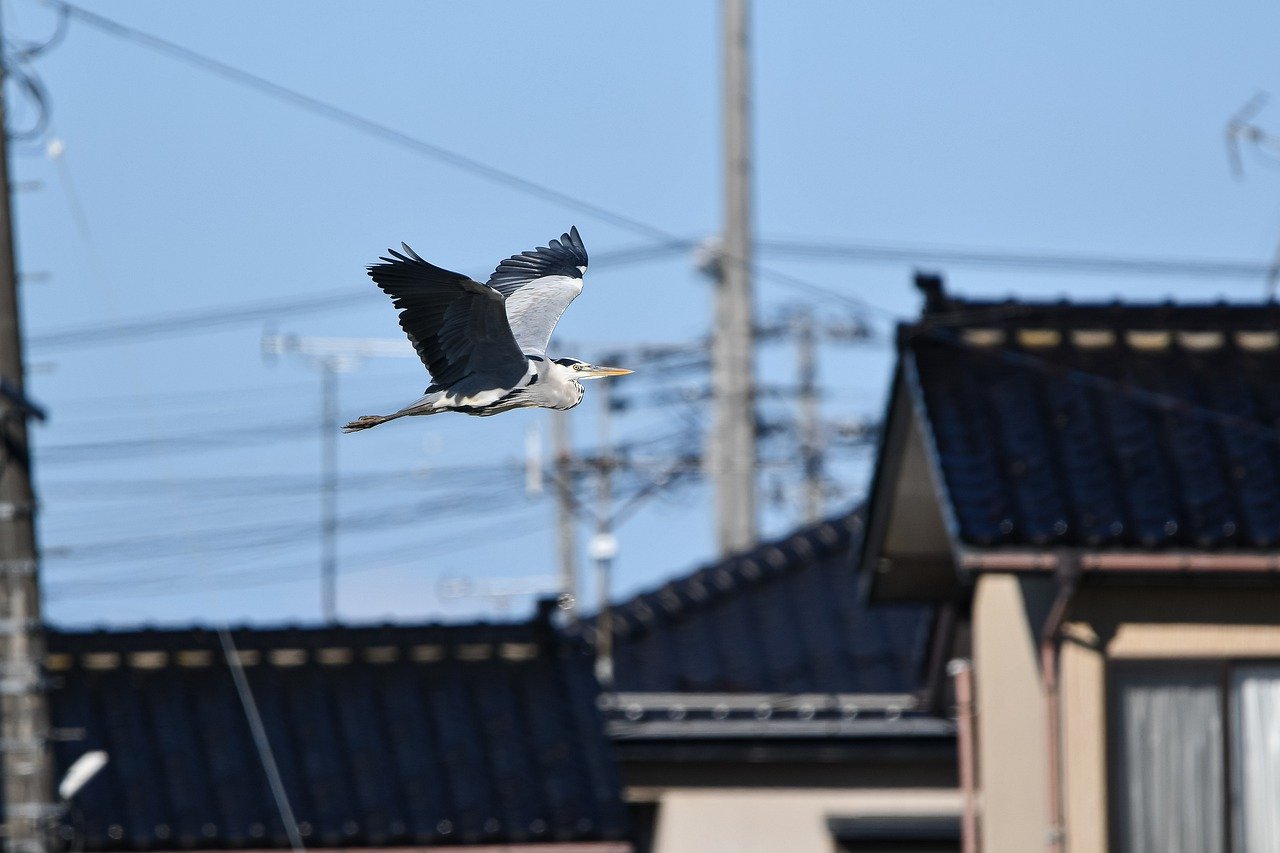
DIY Security Solutions
When it comes to securing your vacation home, you don’t always have to break the bank to achieve peace of mind. In fact, some of the most effective security measures are the simplest and most cost-effective DIY solutions. Think of your vacation home as a treasure chest; you wouldn’t leave it unlocked, would you? Just like you would lock up your valuables, there are straightforward ways to enhance your property’s security without hiring a professional.
One of the first steps you can take is to install motion-sensor lights around the perimeter of your home. These lights not only illuminate dark areas but also deter potential intruders who prefer to operate under the cover of darkness. Imagine walking up to a house with bright lights suddenly flashing on; it’s enough to make anyone think twice about their intentions!
Another effective DIY solution is to reinforce your doors and windows. Consider installing high-quality deadbolts and window locks. These simple upgrades can make it significantly harder for intruders to gain access. You might also consider using security film on your windows. This film strengthens the glass, making it more difficult to break, and can be a lifesaver in case of attempted break-ins.
Additionally, you can create the illusion that someone is home, even when you’re away. Using timers for lights can help. Set them to turn on and off at various times to mimic your usual routine. This small trick can confuse potential burglars, making them think twice before attempting to enter your property.
Lastly, consider investing in a security camera system. While this might sound like a big investment, there are many affordable options available that allow you to monitor your property remotely via your smartphone. This way, you can keep an eye on your vacation home from anywhere in the world. Plus, even the presence of a camera can act as a powerful deterrent.
In summary, securing your vacation home doesn’t have to be a daunting task. With a few simple DIY solutions, you can create a safer environment for your property. Remember, it’s all about being proactive rather than reactive. By taking these steps, you’ll not only safeguard your investment but also enjoy your time away with peace of mind.
- What are some other DIY security measures I can take? You can also consider installing window sensors, using smart home technology to control your locks remotely, and ensuring your landscaping is well-maintained to eliminate hiding spots for intruders.
- Are DIY security solutions effective? Yes, many DIY security solutions can be highly effective, especially when combined with common sense practices like locking doors and windows.
- How often should I check my security measures? It's advisable to review your security measures every few months, especially before and after you visit your vacation home.
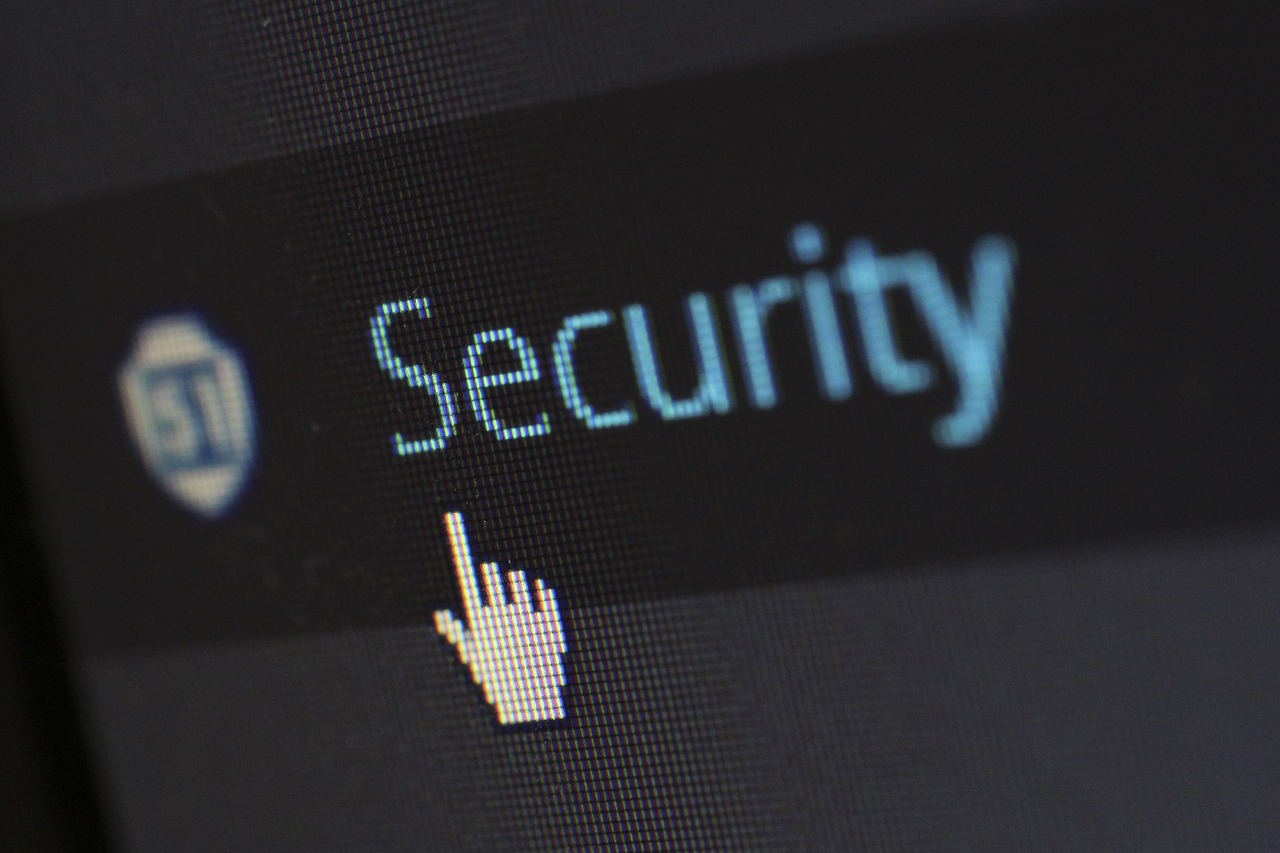
Emergency Preparedness
When it comes to securing your vacation home, is a crucial element that often gets overlooked. Imagine arriving at your serene getaway only to find that a storm has wreaked havoc or that a plumbing issue has turned your dream retreat into a nightmare. To avoid such scenarios, it’s essential to have a comprehensive plan in place. This plan should encompass various aspects, from natural disaster readiness to ensuring that you have emergency contacts readily available.
First and foremost, consider the specific risks your vacation home might face based on its location. For instance, if your property is situated in a coastal area, you should prepare for potential hurricanes or flooding. On the other hand, homes in forested regions may need to focus on wildfire preparedness. Understanding these risks allows you to tailor your emergency plan accordingly.
Here are some key components to include in your emergency preparedness plan:
- Emergency Contacts: Create a list of important contacts, including local emergency services, neighbors, and maintenance personnel. Keep this list somewhere accessible, both in digital form and printed out.
- Emergency Supplies: Stock your vacation home with essential supplies such as flashlights, batteries, first-aid kits, and non-perishable food items. Regularly check and replenish these supplies to ensure they are ready when needed.
- Evacuation Plan: Familiarize yourself with the quickest routes out of the area and keep a map handy. In case of an emergency, knowing where to go can save precious time.
Additionally, it's wise to establish a communication plan with family and friends. This way, everyone knows how to reach each other in case of an emergency. You could even set up a group chat or email thread to keep everyone informed about your vacation home’s status during severe weather events.
Lastly, don't forget about the importance of routine checks. Before you leave your vacation home, conduct a thorough inspection. Look for any signs of wear and tear that could lead to emergencies, such as leaks or structural damage. Taking these proactive steps can go a long way in ensuring that your home remains a safe haven for years to come.
Q: What should I include in my emergency kit?
A: Your emergency kit should include items such as a flashlight, batteries, first-aid supplies, bottled water, non-perishable food, and a multi-tool. Don’t forget to include any necessary medications.
Q: How often should I review my emergency preparedness plan?
A: It's advisable to review your emergency preparedness plan at least once a year or whenever there are significant changes to your property or local risks.
Q: What is the best way to communicate during an emergency?
A: Establish a communication plan with family and friends, using text messages or social media, as phone lines may be down during emergencies. Having a group chat can be particularly effective.

Neighborhood Watch Programs
Engaging with local communities through can significantly enhance the security of your vacation home. These programs are not just about looking out for each other; they create a sense of community and shared responsibility. Imagine a network of vigilant neighbors who are always ready to lend a hand, keeping an eye on your property while you're away. It's like having a security blanket woven from the threads of trust and cooperation.
Neighborhood watch programs encourage residents to be more observant and proactive about their surroundings. When you participate in such a program, you're not only protecting your own home but also contributing to the safety of the entire neighborhood. It’s a win-win situation! By forming these connections, you can share valuable information about local crime trends and suspicious activities.
One of the best aspects of neighborhood watch programs is the camaraderie they foster. You get to know your neighbors better, which can lead to friendships and a stronger community bond. Plus, there’s something comforting about knowing that someone is watching over your vacation home while you’re enjoying your time away. Think of it as having an extended family looking out for you.
To get started, consider organizing a meeting with your neighbors to discuss the formation of a neighborhood watch. Here are some key steps to consider:
- Identify leaders: Find enthusiastic neighbors who are willing to take on leadership roles.
- Establish communication: Create a group chat or email list to share information quickly.
- Develop a plan: Outline how members will report suspicious activities and support each other.
- Engage local law enforcement: Invite a police officer to discuss crime prevention strategies and offer resources.
In addition to these steps, regular meetings can help keep everyone informed and engaged. You can discuss recent incidents, share safety tips, and even organize community events to strengthen relationships. Remember, the more involved everyone is, the more effective the program will be.
Ultimately, participating in a neighborhood watch program not only protects your vacation home but also enriches your experience as a homeowner. You’ll find peace of mind knowing that your property is being watched over by caring neighbors who are as invested in the safety of the area as you are. So why wait? Take the first step today and connect with your community!
| Question | Answer |
|---|---|
| What is a neighborhood watch program? | A neighborhood watch program is a community initiative where residents work together to monitor and report suspicious activities to enhance local safety. |
| How can I start a neighborhood watch program? | Gather interested neighbors, establish communication channels, and develop a plan to report and address safety concerns. |
| Are neighborhood watch programs effective? | Yes, studies have shown that these programs can reduce crime rates and increase community cohesion. |
| Do I need permission to start a neighborhood watch? | While you may not need formal permission, it's a good idea to inform local law enforcement and involve them in your efforts. |
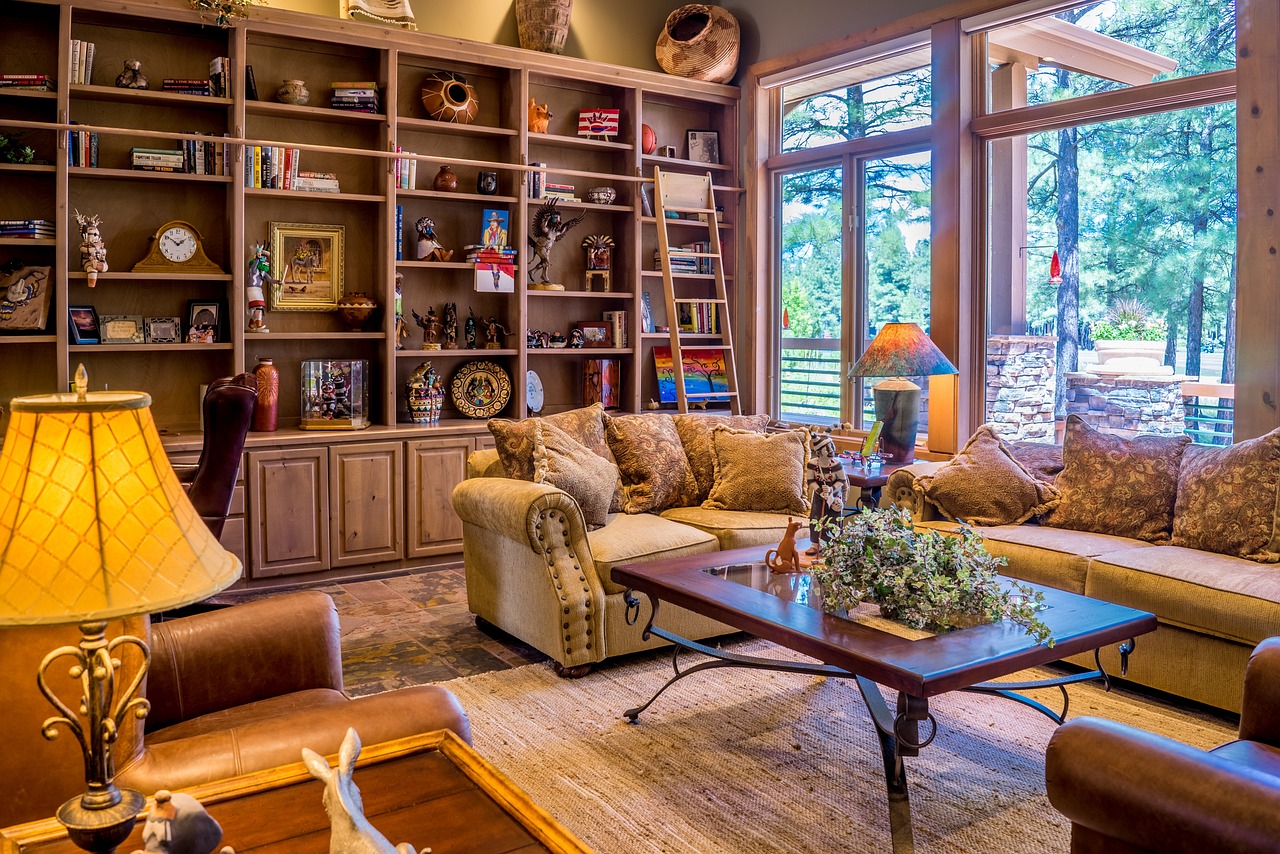
Building Relationships with Neighbors
One of the most effective yet often overlooked strategies for enhancing the security of your vacation home is to build strong relationships with your neighbors. Imagine this: you’re sipping a cocktail on a beach while your home is hundreds of miles away. The thought of someone breaking in can be nerve-wracking. However, when you have a trustworthy neighbor keeping an eye on things, that worry can melt away like ice in the sun. Establishing a rapport with those living nearby not only fosters a sense of community but also creates a network of vigilance that can significantly boost your property’s safety.
Start by introducing yourself to your neighbors when you first arrive at your vacation home. A friendly wave or a casual chat can lay the groundwork for a lasting relationship. Share your contact information and let them know when you’ll be away. This simple act can make a world of difference. When neighbors know your schedule, they can keep an eye out for any unusual activity around your property. It’s like having a built-in security system that doesn’t require batteries!
In addition to being friendly, consider organizing or participating in community events. Whether it’s a neighborhood barbecue or a seasonal gathering, these events can strengthen bonds and create a supportive atmosphere. When neighbors feel connected, they are more likely to look out for one another. You might even establish a small neighborhood watch group where everyone takes turns checking on each other’s homes. This collaborative spirit not only enhances security but also enriches the community.
Moreover, communication is key. Regularly check in with your neighbors, especially if you plan to be away for an extended period. A quick message or call can keep them in the loop and remind them to keep an eye on your property. You might consider creating a simple Neighborhood Alert System, where you and your neighbors can easily share updates about any suspicious activities or local news. Here’s a quick example of how you can structure this:
| Neighbor | Contact Info | Available for Check-ins |
|---|---|---|
| John Doe | (123) 456-7890 | Yes |
| Jane Smith | (987) 654-3210 | No |
| Emily Johnson | (555) 123-4567 | Yes |
By fostering these relationships, you create a safety net around your vacation home. It’s not just about preventing theft; it’s about creating a community where everyone looks out for one another. So, the next time you visit your vacation property, take a moment to connect with your neighbors. You’ll not only enhance your home’s security but also enrich your experience in the community.
- What should I do if I notice suspicious activity around my neighbor's house? - It's best to communicate your concerns with your neighbor and, if necessary, report it to local authorities.
- How often should I check in with my neighbors? - Regularly is ideal, especially before and after your visits to your vacation home.
- Can a neighborhood watch program really make a difference? - Absolutely! It fosters communication and vigilance, making it harder for criminals to operate unnoticed.
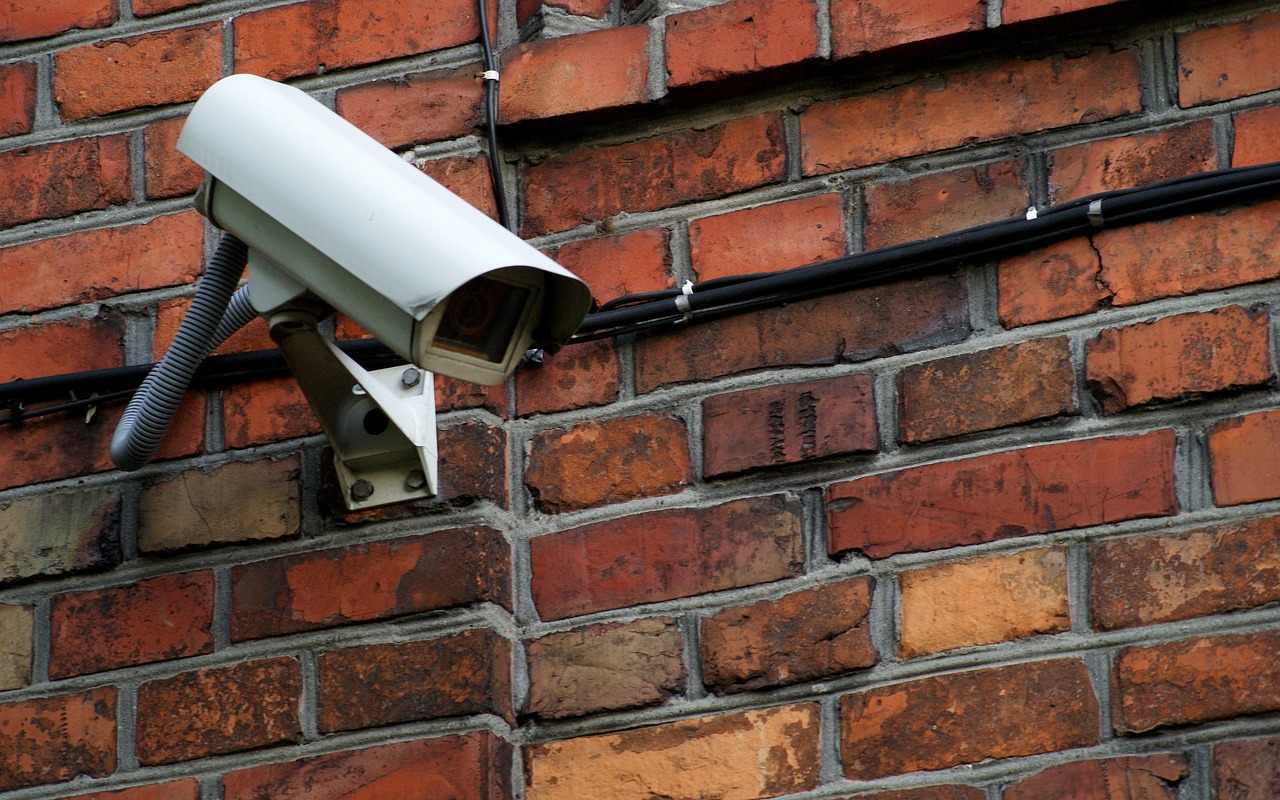
Insurance Considerations
When it comes to safeguarding your vacation home, understanding your insurance options is absolutely essential. Many homeowners overlook this crucial aspect, thinking that their standard home insurance policy will suffice. However, vacation homes often come with unique risks and challenges that require tailored coverage. For instance, if your property is located in an area prone to natural disasters, you might need additional coverage for events like floods or earthquakes. It's vital to assess the specific risks associated with your location and the nature of your property.
In addition to evaluating risks, you should also consider the types of insurance coverage available. Here are some key types to keep in mind:
- Property Insurance: This covers damages to your home due to theft, vandalism, or natural disasters.
- Liability Insurance: This is crucial if someone gets injured on your property. It protects you from potential lawsuits.
- Contents Insurance: This provides coverage for personal belongings inside your vacation home, such as furniture, electronics, and other valuables.
It's also wise to regularly review your insurance policy. As your vacation home evolves—whether through renovations, new purchases, or changes in your personal circumstances—your coverage needs may change as well. For example, if you've upgraded your security systems or made significant improvements to the property, you might want to increase your coverage limits to reflect the new value of your home. Regular reviews can help you stay informed about any changes in coverage options or premium rates, ensuring you're never caught off guard.
Moreover, don't hesitate to engage with your insurance agent. They can provide insights into the best coverage options for your specific situation and help you navigate any complexities in your policy. Being proactive about your insurance can save you a lot of headaches down the line, especially when unexpected incidents occur.
In summary, understanding your is not just about compliance; it's about peace of mind. By ensuring you have adequate coverage for theft, damage, and liability, you can enjoy your time away from home without worrying about what might happen in your absence.
Q: What types of insurance should I consider for my vacation home?
A: You should consider property insurance, liability insurance, and contents insurance to adequately protect your vacation home.
Q: How often should I review my insurance policy?
A: It's advisable to review your insurance policy annually or whenever significant changes occur, such as renovations or new purchases.
Q: Can I get coverage for natural disasters?
A: Yes, many insurance providers offer additional coverage for natural disasters. Be sure to discuss your specific needs with your insurance agent.
Q: What should I do if my vacation home is damaged?
A: Immediately contact your insurance provider to report the damage and begin the claims process. Document the damage with photos and notes for your records.
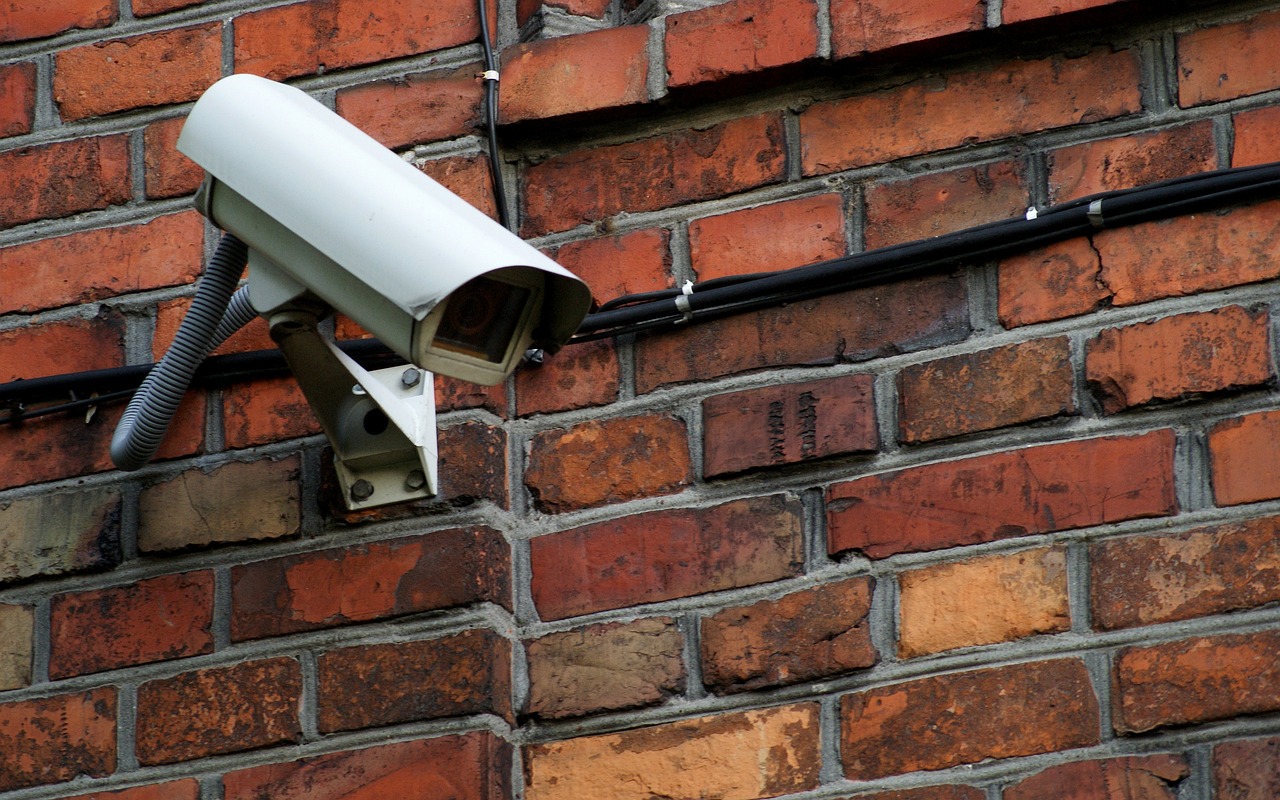
Reviewing Your Policy
When it comes to protecting your vacation home, understanding your insurance policy is crucial. Just like you wouldn’t drive a car without knowing its features, you shouldn’t own a property without being fully aware of your coverage. Regularly reviewing your policy ensures that you’re not only protected against theft and damage but also that you’re aware of any changes that could affect your coverage. Think of your insurance policy as a living document that needs to evolve as your needs change.
One of the first steps in reviewing your policy is to check the coverage limits. Are they sufficient to cover the current market value of your vacation home? Properties can appreciate over time, and if your coverage limits haven’t increased accordingly, you could find yourself underinsured in the event of a disaster. Additionally, consider the deductibles associated with your policy. A higher deductible might lower your premium, but it also means more out-of-pocket expenses in the event of a claim.
Moreover, it’s essential to look at the specific perils covered by your insurance policy. For instance, many standard homeowners' policies do not cover flooding or earthquakes, which could be significant risks depending on your vacation home's location. If your property is in an area prone to these natural disasters, you might need to purchase additional coverage. To make this process easier, create a checklist of the key points to review:
- Coverage limits
- Deductibles
- Specific perils covered
- Liability coverage
- Discounts for security systems
Another important aspect to consider is whether you have adequate liability coverage. If someone gets injured on your property, you could be held responsible, and having sufficient liability coverage can protect you from potential lawsuits. You might also want to explore discounts for security systems or other safety measures you’ve implemented, as many insurers offer incentives for homeowners who take proactive steps to secure their properties.
Finally, don’t forget to keep your insurance agent in the loop about any major changes to your property. Whether you’ve made significant renovations or added new features like a pool or guest house, these changes can impact your coverage needs. Regular communication with your insurance provider can help ensure that you’re always adequately protected.
Q: How often should I review my insurance policy?
A: It’s recommended to review your policy at least once a year, or whenever you make significant changes to your property.
Q: What should I do if I find my coverage is insufficient?
A: Contact your insurance agent to discuss increasing your coverage limits or adding additional policies to better protect your investment.
Q: Are there specific discounts available for vacation homes?
A: Yes, many insurance companies offer discounts for security systems, bundling policies, or being part of a neighborhood watch program.
Q: What happens if I don’t have coverage for a specific peril?
A: If a peril that is not covered by your policy occurs, you will be responsible for the costs associated with any damage or losses incurred.
Frequently Asked Questions
- What are the common vulnerabilities of vacation homes?
Vacation homes often face risks such as theft, vandalism, and damage from natural disasters. Because these properties are not occupied year-round, they can be more appealing targets for intruders. Additionally, lack of regular maintenance can lead to structural vulnerabilities that can be exploited.
- How can I choose the right security system for my vacation home?
When selecting a security system, consider factors like your budget, the level of monitoring you desire (monitored vs. unmonitored), and the specific features you need. Look for systems that offer real-time alerts, remote access, and integration with smart home devices to enhance your security.
- Are DIY security solutions effective?
Absolutely! DIY security solutions can be both effective and budget-friendly. Simple measures like installing motion-sensor lights, using secure locks, and setting up cameras can significantly enhance your home's safety without costing a fortune.
- What should I include in my emergency preparedness plan?
Your emergency preparedness plan should cover natural disasters relevant to your area, such as floods or hurricanes. Make sure to have emergency contacts readily available and consider creating a checklist of important items to secure or remove in case of an emergency.
- How can neighborhood watch programs help with security?
Neighborhood watch programs create a sense of community and vigilance. By engaging with your neighbors, you can establish a network that actively looks out for each other’s properties, which can deter criminal activities and enhance overall security.
- What insurance considerations should I keep in mind for my vacation home?
It's crucial to have adequate insurance coverage that protects against theft, damage, and liability. Regularly reviewing your policy ensures that you are aware of your coverage limits and can make adjustments as your property and its value evolve.
- How often should I review my insurance policy?
It's a good practice to review your insurance policy at least once a year or whenever you make significant changes to your vacation home, such as renovations or upgrades. This will help ensure that your coverage remains sufficient and up to date.



